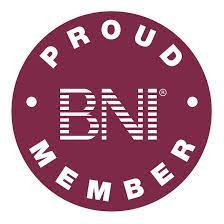Dealing with bullying and promoting kindness in schools is crucial for creating a safe and inclusive environment for students. Here are some strategies and approaches that can be implemented to address bullying and promote kindness:
- Awareness and Education: Educate students, teachers, and parents about what bullying is, its impact on individuals and the community, and the importance of kindness. Conduct workshops, presentations, and discussions to raise awareness and promote empathy.
- Clear Policies and Procedures: Develop clear and comprehensive anti-bullying policies and procedures that outline expectations for behavior, consequences for bullying, and reporting mechanisms. Ensure that these policies are communicated effectively to all members of the school community.
- Encourage Reporting: Create a safe and supportive environment where students feel comfortable reporting bullying incidents. Establish multiple reporting channels, such as anonymous reporting boxes, trusted adults, and online reporting systems. Assure students that their concerns will be taken seriously and that appropriate action will be taken.
- Supportive Adults: Foster positive relationships between students and trusted adults in the school community, such as teachers, counselors, and administrators. Train staff members to recognize signs of bullying, intervene effectively, and provide appropriate support to both victims and perpetrators.
- Peer Support Programs: Implement peer support programs like mentoring, buddy systems, or peer mediation. Encourage older students to act as positive role models, offering guidance and support to younger students. Peer support programs can help build positive connections and promote empathy among students.
- Empathy and Social-Emotional Learning: Incorporate social-emotional learning into the curriculum, teaching students about empathy, compassion, respect, and conflict resolution skills. Foster a school culture that values and promotes kindness, inclusivity, and understanding.
- Positive Behavior Reinforcement: Recognize and reward acts of kindness and positive behavior through verbal praise, certificates, or school-wide initiatives. Highlight and celebrate individuals or groups who demonstrate kindness, creating a culture that encourages and values positive actions.
- Collaboration with Parents and the Community: Involve parents and the wider community in anti-bullying initiatives. Organize workshops, seminars, or family events to promote awareness, provide resources, and strengthen partnerships in addressing bullying.
- Restorative Practices: Utilize restorative practices to address bullying incidents, focusing on repairing harm, building empathy, and fostering accountability. Restorative practices involve bringing together those involved in a conflict to have open and honest dialogues, find resolutions, and promote understanding.
- Continuous Evaluation and Improvement: Regularly assess the effectiveness of anti-bullying strategies and kindness promotion initiatives. Collect feedback from students, parents, and staff members to identify areas for improvement and adjust approaches accordingly.
Remember, addressing bullying and promoting kindness requires a comprehensive and sustained effort from all members of the school community. By implementing these strategies and fostering a positive and supportive environment, schools can create a culture that rejects bullying and encourages kindness and empathy.







